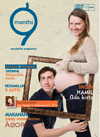Steven Nissen, a prominent Cleveland Ohio Cardiologist recently prodded the FDA's Advisory committee to put a black box warning on Ritalin, warning of potential heart danger. Why? From 1999 to 2003, 81 deaths and 54 nonfatal cardiovascular events such as heart attacks have possible links to Ritalin and similar drugs.
During the same period 78 million prescriptions were written for children up to the age of 18. Today two million kids a month take these drugs.
These are startling statistics to put it mildly! Assuming Nissen is correct, Ritalin is a pretty dangerous method of improving brain-based learning.
Now before I go any further with this story, please do not take a child off their ADD medication or suggest to a parent that such should be done. I am not a medical doctor. I do not prescribe. If you want to look into lowering a dosage or stopping a child's medications, you must talk to a doctor.
What does this story mean in terms of ADD behavior at home and in the classroom? How does it affect brain-based learning? I predict that anxious parents and doctors are going to take kids off their meds. Now what are we going do with 2 million hyperactive kids!
For years, we haven't had to take responsibility for helping these kids or keeping ourselves from going crazy trying to keep some kind of order in the classroom and at home. The drugs did it for us. Now we may be on our own.
Here are ten brain-based learning strategies to help you and your kids cope:
1. Decrease sugar including drinking fruit juice. Cut down on bread and pasta, esp. that made with white, processed flour.
2. Limit TV and video games, especially TV and games that have lots of flashing lights.
3. Help them get organized. Keep a schedule and be consistent.
4. To help with reading focus, let kids read aloud and record their voice. You could read something yourself or purchase a "book on tape." Now they can read along while listening. If they can't sit still for the whole tape, let them listen while moving around. Listening skills are a necessary ingredient for good reading.
5. Practice deep breathing. Kids can even be taught a simple form of meditation which is nothing more than watching one's breath.Even getting more oxygen to the brain is a brain-based learning technique.
6. Cross right ankle over left and then give yourself a hug by crossing arms across the body, left over right. Reduces the stress in the central nervous system. Try it yourself.
7. Decrease visual distractions in children's rooms and at school. Fewer pictures, mobiles, toys. Less stuff.
8. Exercise: play, run, skip, insist on recess at school.
9. Do Brain Gym®. See www.braingymclasses.com. Some kids have gone off their meds or at least had doses reduced by doing Brain Gym. Another very effective brain-based learning strategy.
10. Eat more foods with Omega-3 fatty acids like wild salmon, sardines, tuna, flaxseed, flaxseed oil. Take fish-oil supplements. Omega-3 fatty acids increase the production of neurotransmitter chemicals just as Ritalin does.
Brain-based learning strategies include attention to what we feed our brains and how that food affects the brain's neurotransmitters.
Using these teacher resources and parenting tips will help you help children get control over ADD/ADHD, settle down, and learn more easily.
About The Author
MaryJo Wagner, Ph.D.The Learning Doctor "Helping You Help Yor Kids Learn".
Sign up for a brain-based learning newsletter to help your kids learn faster and easier at http://www.brain-based-learning.com/newslettersubscribe.htm.
Article source: http://www.articles3000.com/Kids-and-Teens/21420/What-to-do-When-Kids-Go-off-Their-Meds-Brain-based-Learning-Strategies-for-ADD-ADHD.html
Who links to me?

